
Lisa Grossman is the astronomy writer for Science News. Previously she was a news editor at New Scientist, where she ran the physical sciences section of the magazine for three years. Before that, she spent three years at New Scientist as a reporter, covering space, physics and astronomy. She has a degree in astronomy from Cornell University and a graduate certificate in science writing from UC Santa Cruz. Lisa was a finalist for the AGU David Perlman Award for Excellence in Science Journalism, and received the Institute of Physics/Science and Technology Facilities Council physics writing award and the AAS Solar Physics Division Popular Writing Award. She interned at Science News in 2009-2010.

Trustworthy journalism comes at a price.
Scientists and journalists share a core belief in questioning, observing and verifying to reach the truth. Science News reports on crucial research and discovery across science disciplines. We need your financial support to make it happen – every contribution makes a difference.
All Stories by Lisa Grossman
-
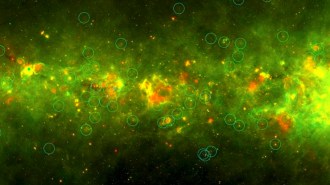 Astronomy
AstronomyMysterious ‘yellowballs’ littering the Milky Way are clusters of newborn stars
The first comprehensive analysis of the celestial specks indicates they are clusters of infant stars of various masses.
-
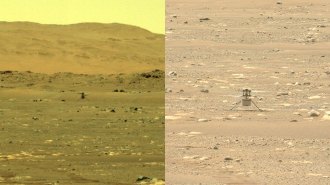 Planetary Science
Planetary ScienceNASA’s Ingenuity helicopter made history by flying on Mars
An autonomous helicopter just lifted itself into the air on Mars, marking the first time a vehicle has flown on a planet other than Earth.
-
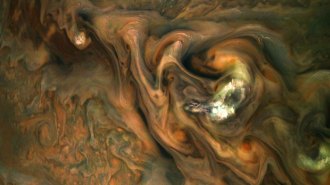 Planetary Science
Planetary ScienceHow the laws of physics constrain the size of alien raindrops
Physics limits the size of raindrops, no matter what they’re made of or what planet they fall on.
-
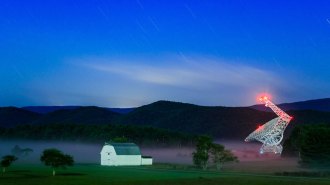 Astronomy
AstronomyCarbon-ring molecules tied to life were found in space for the first time
Two types of polycyclic aromatic hydrocarbons in the Taurus Molecular Cloud are far more abundant than predicted.
-
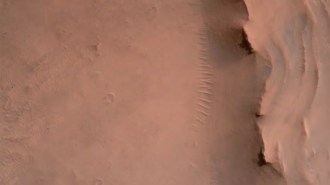 Planetary Science
Planetary ScienceWatch real video of Perseverance’s Mars landing
NASA’s Perseverance rover filmed its own landing on Mars. Here’s that video.
-
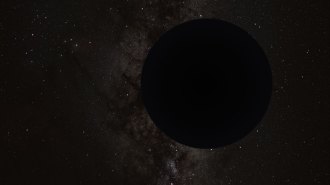 Astronomy
AstronomySigns of a hidden Planet Nine in the solar system may not hold up
Hints of a remote planet relied on clumped up orbits of bodies beyond Neptune. A new study suggests that clumping is an illusion.
-
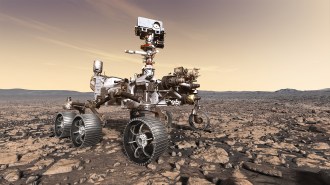 Planetary Science
Planetary ScienceNASA’s Perseverance rover has touched down on Mars
The spacecraft will arrive at Mars on February 18, joining missions from China and the United Arab Emirates.
-
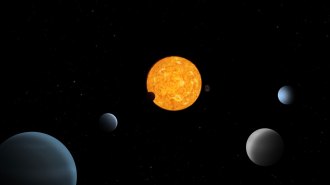 Astronomy
AstronomyTwo exoplanet families redefine what planetary systems can look like
The TRAPPIST-1 and TOI-178 systems, both home to multiple bunched-up planets, have densities and orbits that defy expectations.
-
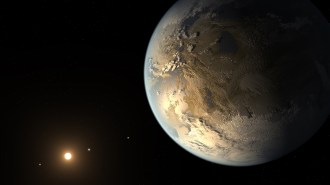 Space
SpaceCrushed space rocks hint at exoplanets’ early atmospheric makeup
Experiments that heat crushed-up meteorites are helping astronomers understand what to look for in exoplanet atmospheres.
-
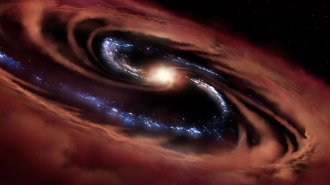 Astronomy
AstronomyAstronomers spotted a rare galaxy shutting down star formation
A distant galaxy harbors an active black hole and active star formation at the same time – an unusual coincidence.
-
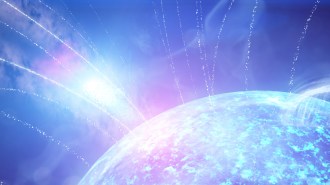 Space
SpaceThe first magnetar flare detected from another galaxy was tracked to its home
An outburst from the super magnetic remains of a star suggests similar eruptions are behind some of the most powerful explosions in the universe.
-
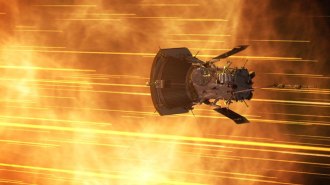 Space
SpaceThe Parker Solar Probe will have company on its next pass by the sun
The probe is about to make another close pass of the sun. This time, Solar Orbiter, BepiColombo and others will be watching too.